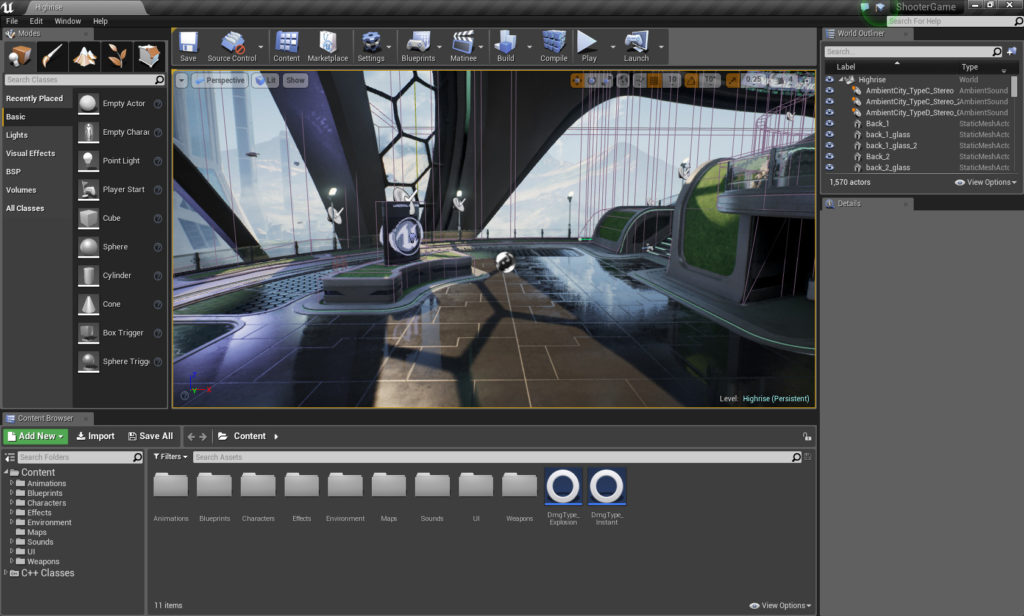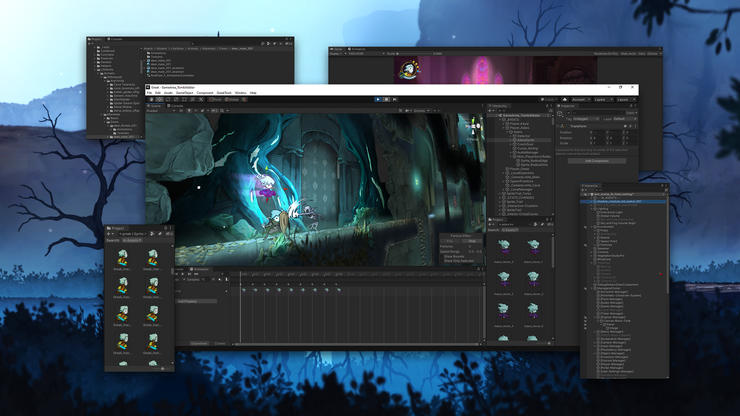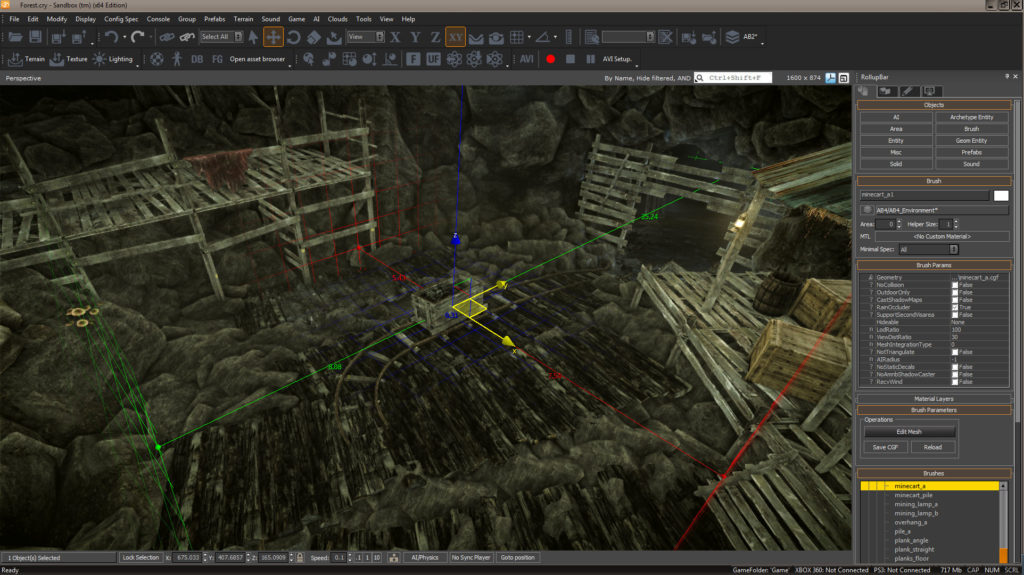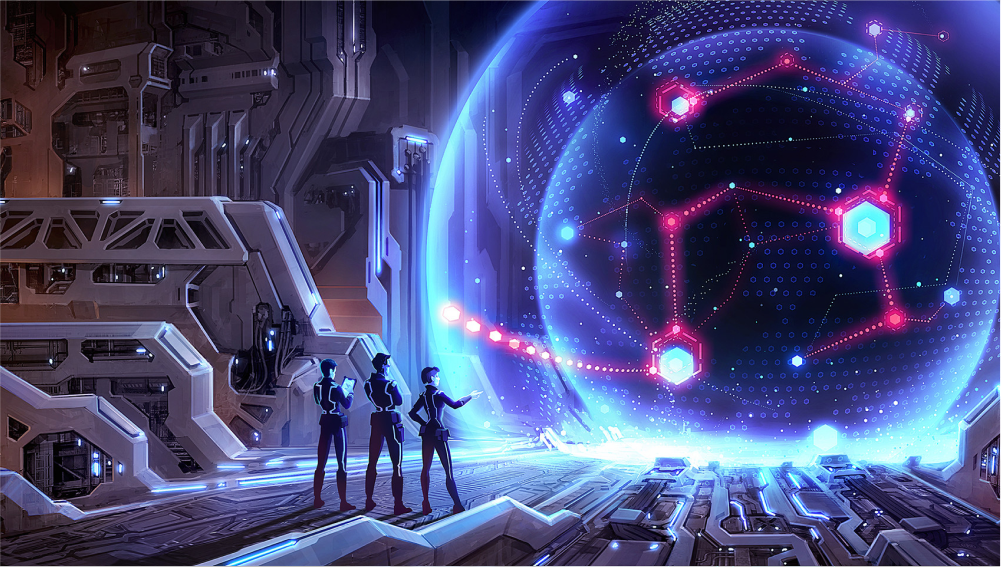Quick Introduction
- A game engine controls graphics, physics, input, sound, scripts, and AI behaviors in a game.
- Many core processes are automated by game engines, which helps developers save time and money. This allows them to spend more time writing gameplay code or creating unique elements like character models and textures.
- The use of game engines can help companies beyond gaming. Visualize data, products, and processes in new ways and develop innovative ways of collaborating and innovating.
The most advanced game engines have reached an unprecedented level of dominance. In the global video game industry, including Unreal Engine, Unity, CryEngine, and Amazon Lumberyard.
The gaming industry raked in a whopping $180 billion in revenue in 2020. With projections estimating its value to exceed $200 billion USD by 2023. A key driving force behind this remarkable success is the widespread availability of reliable, user-friendly, and feature-rich gaming engines. These powerful tools have simplified game development, enabling countless developers. To create visually stunning game worlds, craft impactful narratives, and transport players to immersive new universes.
In addition to gaming, these game engines are also widely utilized across various industries. Ranging from film production pre-visualization to automotive modeling and even architecture. They offer unparalleled levels of design, simulation, and computing power, empowering creators in diverse fields. As we look towards the future Metaverse, which relies on seamless connectivity among millions of concurrent users. Achieving higher fidelity in digital environments will play a pivotal role in its development.
What is a Game Engine?
A game engine is a software framework or toolkit utilized by developers to create and run games. These engines provide a wide range of functions such as visuals, physics, rendering, scripting, collision detection, AI behaviors, and more. They have revolutionized the game development process by allowing developers to efficiently create high-quality games without starting from scratch and incurring extensive time and cost commitments to build their own game engine.
Today, game engines are the foundation of nearly all the remarkable and popular games, spanning from indie games to AAA titles. While there are no strict rules defining the minimum functionality for a game engine, most top engines share core features such as:
Functions
- Graphics: Leading game engines support a wide range of graphics, from simple 2D to intricate 3D rendering. They allow developers to import files from third-party software, providing flexibility in designing the visual elements of their games.
- Physics: Game engines handle in-game physics, including solving the equations of motion and detecting collisions, which contribute to the overall immersion of the game world.
- Audio Engine: Game engines include audio engines that can load and play various sound and music files, such as spoken dialogue, musical cues, object sounds, and ambient music, adding depth and richness to the game’s audio experience.
- Input: Game engines convert input from players, such as mouse clicks, mouse movements, key presses, and controller inputs, into actionable movements within the game, ensuring smooth and responsive player interactions.
- Artificial Intelligence: AI is commonly used in game engines to create non-playable characters (NPCs) and implement pathfinding, allowing game environments to adapt to players’ reactions and behaviors, enhancing the game’s realism and complexity.
- Networking: Modern game engines offer comprehensive networking frameworks for online multiplayer play and downloadable content, aiming to reduce latency between clients distributed across different geographic locations.
- Graphical User Interface: Game engines enable developers to design custom graphical user interfaces (GUI) that align with the game’s style and aesthetics, enhancing the overall user experience and usability.
- Scripts: Game engines often provide pre-built scripts that can be attached to game objects, speeding up the development process and helping developers achieve their vision more efficiently.

Understanding Their Vital Role in Modern Game Development
Creating an immersive game from scratch can be a daunting and expensive task. However, game engines provide developers with essential tools that save both time and money. This enables them to focus on writing gameplay code and creating unique elements such as character models, textures, and object interactions. Some game engines are so visually-oriented that games can be built without writing a single line of code. Others offer cross-platform compatibility, allowing developers to toggle between console, desktop, or mobile build configurations, making game development more versatile and accessible.
Originally designed by game developers to streamline game development. Game engines have evolved into powerful rendering tools with applications far beyond the gaming industry. These engines now offer opportunities for other industries to visualize data, products, and processes in innovative ways, fostering collaboration and creativity.
Modern Development
One prominent example is virtual reality (VR), where game engines have revolutionized the process of building virtual settings. Instead of writing complex algorithms from scratch, developers can leverage game engines to handle the heavy lifting, making VR development more efficient and accessible.
But game engines are not limited to VR. They are also utilized in simulating real-world scenarios, such as predicting foot traffic through architectural designs before construction begins. This allows architects and designers to optimize their designs for real-world usage, enhancing decision-making and problem-solving.
The versatility of game engines has opened up new possibilities across various industries. Empowering professionals to visualize, simulate, and innovate in ways that were once unimaginable. As game engines continue to advance, their applications are expected to expand further, shaping the future of technology across diverse fields.
Top Game Engines: A Look at the Most Popular Choices
- Unreal Engine – Epic Games’ Unreal Engine stands as one of the most widely used game engines in the industry today. With its original version released in 1998, and continuous updates over 17 years. It has become a trusted choice for many major games. Notable titles and series such as Fortnite, Gears of War, Mass Effect, Bioshock, The Batman: Arkham, and Final Fantasy 7 Remake have all been developed using Unreal Engine. Showcasing its enduring popularity and capability in the world of gaming.

- Unity – is a highly versatile game engine that supports interactive 3D content across multiple platforms. From open-source game development to creating 2D games. Unity has a comprehensive range of features. It is also widely used for mobile game development, with a strong community and its own Asset Store offering a plethora of free and paid packages. One of the strengths of Unity is its cross-platform compatibility. With support for Mac, Windows, Linux, Android, iOS, Switch, Xbox, PS4, Tizen, and other platforms. Notable titles developed with Unity include Lara Croft Go, Ori and the Blind Forest, Pillars of Eternity, Temple Run, Assassin’s Creed Identity… In addition to its success in traditional game development, Unity has also gained traction in the web3 space. Games like Guild of Guardians and Axie Infinity showcasing its potential for innovative and immersive experiences beyond traditional gaming realms.

- CryEngine – developed by CryTek, is a robust game engine that offers a full-featured sandbox editor for game development across major platforms including Xbox, PS4, Windows PC, and Oculus. It is highly regarded as one of the best free. Open-source game engines available, providing free licenses and unparalleled flexibility for developers. One of the standout features of CryEngine is its wealth of free educational resources, including tutorials, forums, and documentation, which are invaluable for beginners looking to learn and hone their skills. This accessibility and support make CryEngine an ideal choice for aspiring game developers looking to create stunning and immersive games.

To Sum Up
In conclusion, game engines have evolved into powerful tools that enable the creation of digital environments. As the video game market continues to expand, gamers are eagerly anticipating the next big thing. These game engines are poised to drive that innovation forward. Originally designed for game development, these engines have now found applications in various complex fields beyond gaming. Looking ahead, it’s likely that game engines will play a pivotal role in building the infrastructure of the Metaverse.
Disclaimer: This article is provided for informational purposes only. It is not offered or intended to be used as legal, tax, investment, financial, or other advice.






